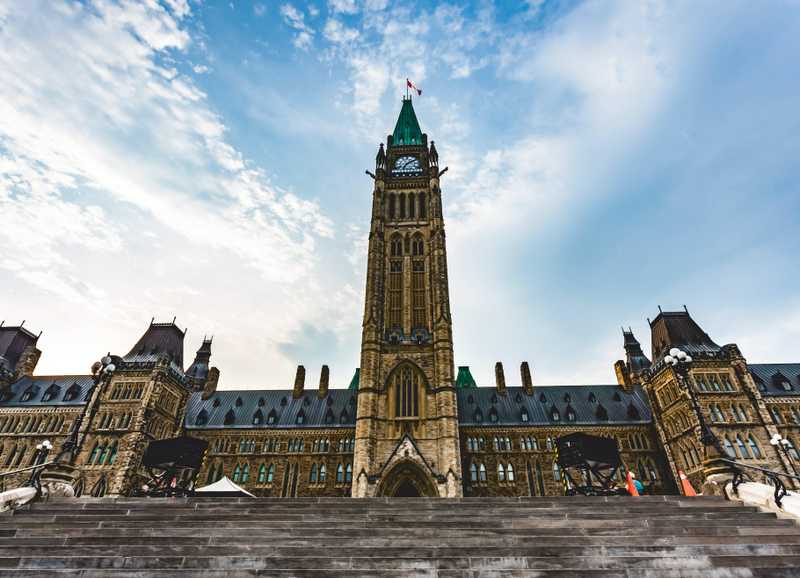Last May, Vancouver venture capitalist Sam Znaimer had a shock when he tried to cross the border into the United States. Not only did U.S. border authorities stop him from entering, but they also gave him a lifetime ban.
The issue was cannabis. Sam didn’t have any on him or have any drug convictions. The border officials didn’t even ask him if he used marijuana. The trouble was that Sam had started investing in U.S. cannabis companies a few years ago.
“I was truly shocked by what happened to me,” says Sam in a CTV news interview. “I believe that . . . they wanted to send a message to Canadians that it has not only to do with your personal behavior, but whether in any way you have invested in these companies.”
As Canada waits for Bill C-45 to come into force in October, it’s increasingly finding itself out of sync with international partners. Canada will be only the second nation in the world to legalize adult-use cannabis. And it will be alone entirely as the lone G7 country with national legal medical and recreational marijuana.
The problem at the U.S.-Canada border is one example of the international issue of legal marijuana in Canada. While some U.S. states, such as Colorado and Washington, allow recreational marijuana, border crossings are under federal jurisdiction, which maintains that cannabis is illegal.
RELATED: HOW LEGAL CANNABIS COULD AFFECT U.S.-CANADA BORDER CROSSINGS
So even if a Canadian doesn’t take marijuana and has a clean criminal record, they apparently run the risk of being banned from the U.S. if they invest or work in the industry.
Is Legal Marijuana Violating International Drug Treaties?
One big headache for Canada is that it’s part of various international drug treaties, which legal recreational cannabis technically violates. These include the
- Single Convention on Narcotic Drugs of 1961
- 1971 Convention on Psychotropic Substances
- 1988 Convention against Illicit Traffic in Narcotic Drugs and Psychotropic Substances
In fact, at hearings held earlier this year by the Standing Senate Committee on Foreign Affairs and International Trade, Mark Gwozdecky of Global Affairs admitted, “Canada’s proposed approach to cannabis will result in Canada being in contravention of certain obligations related to cannabis under the UN drug conventions.”
Some legalization proponents claim that legalization may violate the letter of these agreements, but that it upholds the spirit. The argument, loosely paraphrased, goes something like this: The treaties are intended to cut back on the harms of illicit drug use. By legalizing and controlling the use of marijuana, Canada would do this far more effectively than it does now with its existing laws.
For example, in its report to the federal government, Canada's task force on cannabis legalization said, “It is our view that Canada's proposal to legalize cannabis shares the objectives agreed to by member states in multilateral declarations, namely: to protect vulnerable citizens, particularly youth; to implement evidence-based policy; and to put public health, safety and welfare at the heart of a balanced approach to treaty implementation.”
Those on the other side of the fence view this as slippery logic and feel that Canada should delay legalization until it has updated its commitments to these treaties—or withdrawn from them completely.
But overall, the Canadian government’s approach seems to be it’ll go ahead with legalization and deal with the international consequences later.
Canada Becomes Everyone’s Legal Cannabis Petri Dish
Many countries are looking at Canada because they’re considering relaxing cannabis laws themselves. They want to see what happens when a big G7 nation does so.
“It’s going to be a bit of a science fiction experience for a while,” says Benedikt Fischer, an expert on substance and senior scientist at the Centre for Addiction and Mental Health. “It’s unique in the world, because it’s happening for the first time in a wealthy country. It’s not like in the U.S., where there are these state experiments. Most people kind of ignore Uruguay. And so the world is really looking at this.”
Other nations want to know, for example, if legalization will affect the country’s crime patterns and health statistics. Will legal adult-use marijuana reduce organized crime or will criminal groups simply turn their attention to other drugs, like heroin?
Will legal marijuana—with proven pain-relief benefits—reduce opioid use or will cannabis act as a gateway drug and increase it?
What about legal cannabis pricing? If it’s too low, it may entice a lot of new consumers. If it’s too high, it may drive people to the illicit market.
How will Canada deal with cannabis-impaired driving?
And the list goes on.
Outside Investors in Canada’s Cannabis Future
Other countries are also interested in Canadian legalization because of the possible money to be made in the predicted $5 billion-plus industry.
In fact, last January, long before cannabis legislation had cleared its last hurdles, Canada’s recreational marijuana market raised more than $1 billion in capital. At that time, Canadian licensed producers were among the top 10 most-traded shares on Nordnet, a Swedish online broker bank. And this even though the Scandinavian country has no plans to legalize marijuana itself.
Whether other countries invest it its cannabis future, Canada needs to get used to playing on the global centre stage.
Photo credit: Michel Rathwell
